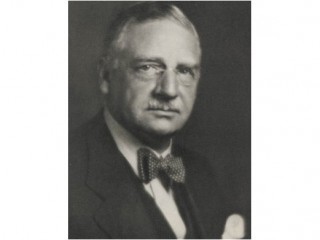
Otto Loewi biography
Date of birth : 1873-06-03
Date of death : 1961-12-25
Birthplace : Frankfurt, Germany
Nationality : German
Category : Science and Technology
Last modified : 2011-12-19
Credited as : pharmacologist, discovered acetylcholine, Nobel laureate
0 votes so far
After years of study and research, German-American pharmacologist and physiologist Otto Loewi identified adrenaline as a nervous system transmitters, and noradrenaline as the most important neurotransmitter. For this he was awarded the Nobel Prize for Physiology or Medicine in 1936, an honor shared with the British scientist Henry Dale.
Two years later, as Austria was invaded by Nazi Germany, Loewi was immediately jailed for the crime of Jewishness. He and his wife lost all their worldly possessions, but using his Nobel cash award they were able to bribe their way out of the country. They emigrated to London, then took refuge in Belgium, before fleeing to the United States, where Loewi became a professor at New York University, and an American citizen.
Loewi's investigations “On an augmentation of adrenaline release by cocaine” and “On the connection between digitalis and the action of calcium” were profound concepts and were studied relentlessly by others decades later.
He also clarified two mechanisms of eminent therapeutic importance: the blockade and the augmentation of nerve action by certain drugs.
He is almost as famous for the means by which the idea for his experiment came to him as he is for the experiment itself. On Easter Saturday 1923, he dreamed of an experiment that would prove once and for all that transmission of nerve impulses was chemical, not electrical. He woke up, scribbled the experiment onto a scrap of paper on his night-stand, and went back to sleep.
The next morning he arose very excited because he knew this dream had been very important. But he found, to his horror, that he couldn't read his midnight scribbles. That day, he said, was the longest day of his life, as he could not remember his dream. That night, however, he had the same dream. This time, he immediately went to his lab to perform the experiment. From that point on, the consensus was that the Nobel was not a matter of "if" but of "when."
















